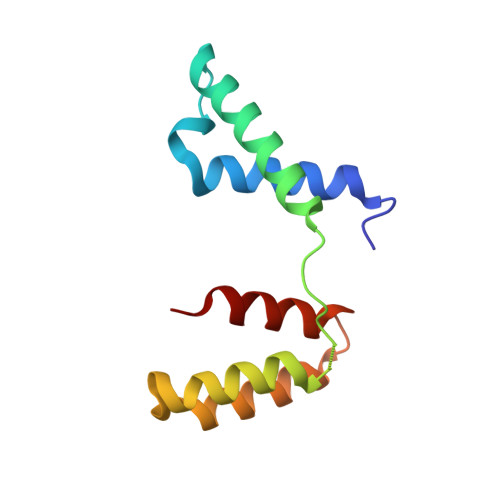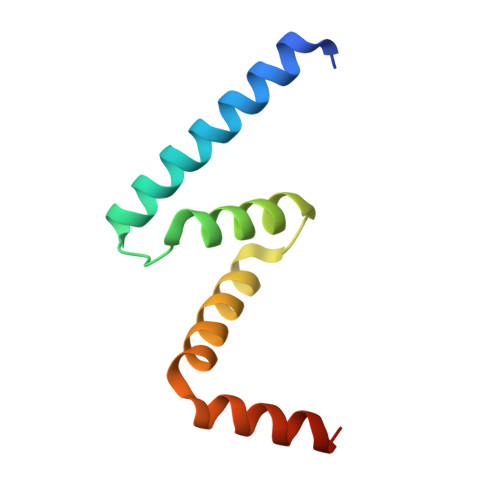Promiscuous Binding of Microprotein Mozart1 to gamma-Tubulin Complex Mediates Specific Subcellular Targeting to Control Microtubule Array Formation.
Huang, T.L., Wang, H.J., Chang, Y.C., Wang, S.W., Hsia, K.C.(2020) Cell Rep 31: 107836-107836
- PubMed: 32610137
- DOI: https://doi.org/10.1016/j.celrep.2020.107836
- Primary Citation of Related Structures:
6L7R, 6L80, 6L81, 6L82 - PubMed Abstract:
How γ-tubulin ring complex (γ-TuRC), a master template for microtubule nucleation, is spatially and temporally regulated for the assembly of new microtubule arrays remains unclear. Here, we report that an evolutionarily conserved microprotein, Mozart1 (Mzt1), regulates subcellular targeting and microtubule formation activity of γ-TuRC at different cell cycle stages. Crystal structures of protein complexes demonstrate that Mzt1 promiscuously interacts with the N-terminal domains of multiple γ-tubulin complex protein subunits in γ-TuRC via an intercalative binding mode. Genetic- and microscopy-based analyses show that promiscuous binding of Mzt1 in γ-TuRC controls specific subcellular localization of γ-TuRC to modulate microtubule nucleation and stabilization in fission yeast. Moreover, we find Mzt1-independent targeting of γ-TuRC to be crucial for mitotic spindle assembly, demonstrating the cell-cycle-dependent regulation and function of γ-TuRC. Our findings reveal a microprotein-mediated regulatory mechanism underlying microtubule cytoskeleton formation, whereby Mzt1 binding promiscuity confers localization specificity on the multi-protein complex γ-TuRC.
- Molecular and Cell Biology, Taiwan International Graduate Program, Academia Sinica and National Defense Medical Center, Taipei 11490, Taiwan; Institute of Molecular Biology, Academia Sinica, Taipei 11529, Taiwan.
Organizational Affiliation:

















